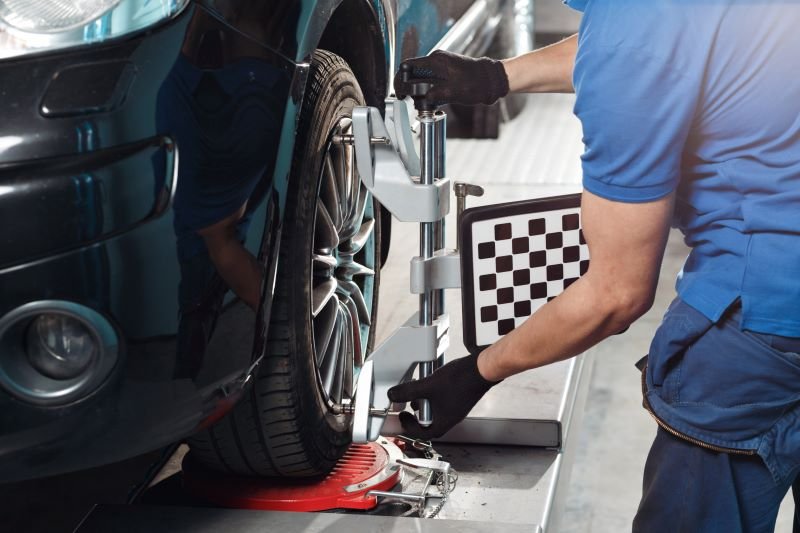You will need to gain some prior knowledge about auto loans and the pros and cons of taking on debt before you finally decide to buy a car. Remember, new or old, it is your knowledge and confidence that will allow you to choose the best auto loan.
- This will keep you away from the stress and tension of managing loans that are out of your hands.
- You will not have to compromise on your luxuries or cut your budget short.
- You will not have to follow any debt settlement or other debt relief programs as you may find in sites like Nationaldebtrelief.com or others.
All you need is a little bit of time and effort to put in for your research. This should include specific things like knowing about:
- The car you want to buy
- The dealer you want to buy the car from
- The loan that you wish to take and
- The laws that govern debt and debt collection.
All these will increase your confidence and knowledge thereby your chances to finally take on a loan and a car that you can afford to handle.
First, prepare yourself well before you step into the dealership. This includes four stages such as before you visit the dealership, at the dealership, before you sign on the loan contract at the dealership and after that.
Before visiting the dealership
There are a few specific ways in which you should prepare yourself to take out an auto loan and visit the dealership.
- First, you should identify your transportation needs and make sure that owning a car will relay help you in the process. Otherwise, stick to your current means of public transportation.
- Next, figure out your financial condition and consider your budget. Use proper worksheets or budget planner to find exactly how much you can afford to take out as a loan and spend on a vehicle. Remember, longer the term means smaller will be the monthly payments as compared to shorter-term finance contracts. However, you must also know that if all other terms remain the same, you will pay more money over time in a longer-term loan.
- Obtain a copy of your credit report and read it. find out whether there are any errors or correct negative information in it. Both will affect your credit and ability. Though you can dispute the errors and get it rectified legally, to get the negative info dropped from it you will need to postpone our plan and work on getting everything positive in your credit report. If you pay off your credit obligation as and when they are due, you will surely get a loan at a much lower rate.
- Next, check different auto buying guides, newspaper ads, and other websites and publications to know about the price range and other information for a particular vehicle you are interested in to buy. Also, visit the dealer websites to know their inventory apart from their location.
- Also, check the cost of insurance from the insurer in advance. This will help you to factor in that amount to your loan to find the final cost of it.
- Find out the current market value of you’re the car you own currently if any before you negotiate for the new vehicle. Also find out the net outstanding balance on your existing loan, if any. If you find that the value of your car is less than the amount you owe, consider paying this negative equity down first.
- Compare the APRs and loan terms from several different sources such as banks, finance companies, credit unions, and of course, dealerships. Also, research for information about the current offers and deals online. This will help you to know about the restrictions on specific loans that you may find most attractive from a particular credit source.
Lastly, know the difference between buying a car and leasing a vehicle.
At the dealership
With all of the above info and knowledge when you step into a dealership to look for a suitable car and an auto loan you must ensure that you follow these steps.
- Make sure that you stick to your price range
- Try to negotiate with the dealer on both the purchase price of your car as well as on your loan or lease terms
- Find out whether or not a specific loan offer and terms meet your budget as well as your transportation needs
You must also try to understand the cost and the value of any optional and additional products or services that the dealer wants to offer to you such as guaranteed auto protection, extended warranties or service contract, or credit insurance. Remember. All these will come at an additional price that will add to the eventual cost of your loan.
Before signing the contract
In addition to that, you must also make sure that the loan payments that you are to make or any other terms quoted in the contract do not include any of these products unless you specifically mention that you want them. There is nothing as obvious in a loan. If you do not want them, simply decline from signing the contract it these are included in it.
Most importantly, read the entire contract very carefully. Ask the dealer anything that you do not understand or find confusing before you sign the terms of the contract. If you are opting for dealership financing or leasing, make sure that you ask whether or not the terms and conditions are final.
After signing
Remember, once you sign on the loan contract, you are legally obligated to repay it. Therefore, make sure you sign it in full confidence. After you sign to get a copy of the credit contract duly filled in and signed before you leave the dealership. Do not agree on papers provided or mailed later.
Also know if the finance source has a lien on the title of the vehicle. In some cases, it can hold the actual title till you pay the contract in full.




